Solutions Overview

Optional Medicare Advantage Plans for Medicare Primary Retirees:
In the last 20 years, there have been many solutions developed for Medicare primary Retirees. Currently Districts that offer The Empire Plan to its retirees are providing and group Medicare Supplement plan with a Medicare Part D pharmacy benefit. As part of the Medicare Modernization act of 2003, Medicare Advantage Plans were introduced to provide additional options to Medicare primary Retirees.
Medicare Advantage plans, also called Medicare Part C, are comprehensive health plans offered by private insurance companies approved by Medicare. These plans combine the coverage of Original Medicare (Part A and Part B) and often include additional benefits such as prescription drug coverage (Medicare Part D), vision, dental, and hearing services. Medicare Advantage plans operate as an alternative to Original Medicare and provide care through a network of healthcare providers. They usually require you to use network providers.
ICHRA – Individual Coverage Health Reimbursement Arrangements:
ICHRA stands for Individual Coverage Health Reimbursement Arrangement. It is a type of health benefit arrangement established by employers in the United States to provide their employees with funds to purchase individual health insurance coverage. ICHRA was introduced as part of a regulatory change by the Trump administration and became effective on January 1, 2020.
Under an ICHRA, employers set aside a specific amount of money that employees can use to reimburse themselves for individual health insurance premiums and eligible medical expenses. The employer determines the amount of funds allocated to each employee, and these funds are typically tax-free for the employee. The employer can contribute different amounts for different employee classes, such as full-time versus part-time employees or employees in different locations.
One of the key features of ICHRA is its flexibility. Unlike traditional employer-sponsored group health insurance plans, ICHRA allows employees to choose their own health insurance coverage that suits their individual needs. Employees can select any individual health insurance plan from the marketplace, including plans offered on the federal or state-based exchanges or plans purchased directly from insurance carriers. This allows employees to have more control over their health insurance options.
Additionally, ICHRA can also be used to reimburse employees for certain qualified medical expenses, such as copayments, deductibles, and other out-of-pocket costs. The specific eligible expenses are determined by the employer and outlined in the ICHRA plan documents.
It is important to note that ICHRA is different from the previous Health Reimbursement Arrangement (HRA) options available to employers. Unlike the previous HRAs, ICHRA allows employers of all sizes to offer this type of health benefit arrangement, and it is not limited to certain types of employers or employee classes.
Overall, ICHRA provides employers with a flexible and cost-effective way to offer health benefits to their employees while allowing employees to have more choice and control over their individual health insurance coverage.
MEC- Minimum Essential Health Plan:
Beginning in 2015, large employers may be subject to a penalty tax (also called an “assessable payment”) for failing to offer minimum essential health care coverage for substantially all full-time employees (and their dependents). The penalty is equal to $2800+ per year, for EVERY full-time employee who is not offered access to Minimum Essential Health Care Coverage.
The Code § 4980H subsection (a) penalty applies only if an employer fails to offer adequate coverage and at least one employee enrolls in subsidized exchange coverage. If the employer offers “minimum essential coverage” to substantially all full-time employees, an applicable large employer will not be liable for a subsection (a) penalty. Do not confuse minimum essential coverage with minimum value. “Minimum value” refers to the requirement that an eligible employer-sponsored plan cover at least 60% of the allowed cost under the plan; this is important in determining whether the subsection (b) penalty may apply.
Minimum Essential Health Plans is a low-cost option to meet the requirements under § 4980H subsection (a).
H.R.A / H.S.A Stacked Health Plans:
Stacked Health Plans incorporate the reduced premium costs associated with High Deductible Health Plans, with the tax advantages available through Health Reimbursement Arrangements and Health Savings Accounts. An annual census conducted by America’s Health Insurance Plans (AHIP) of United States health insurance companies shows that enrollment in health savings account/high-deductible health plans (HSA/ HDHPs) totaled 22.7 million in January 2020. Health Savings Account (HSA) plans give consumers incentives to manage their own health care costs by coupling a tax-favored savings account used to pay medical expenses with a high-deductible health plan (HDHP) that meets certain requirements for deductibles and out-of-pocket expense limits. The funds in the HSA are owned by the individual and may be rolled over from year to year.
In 2002, Health Reimbursement Arrangements HRAs were the first non-pilot savings accounts option that spurred the initial Consumer-Driven Healthcare Movement. While only employer allotments were allowed, this is the first time a continuous carry forward of an account was allowed. An HRA is an arrangement that: (1) is funded solely by the employer, (2) reimburses the employee for medical care expenses incurred by the employee and the employee’s spouse and dependents and, (3) provides reimbursements up to a maximum dollar amount for a coverage period and any unused portion of the maximum dollar amount at the end of a coverage period is carried forward to increase the maximum reimbursement amount in subsequent coverage periods.
By combining both the Tax qualified Employer Sponsored Health Reimbursement Arrangement (HRA) with the tax qualified Health Savings Accounts (HSA), employers can reduce their costs, reduce employee out of pocket costs, and offer a plan were participating employees can save for future costs without the fear of “If you don’t use it, you will lose it”!
Ancillary Benefits Exchange
The HealthPass Ancillary Exchange allows employees to go online and shop for their benefits from comprehensive Dental, Vision, Life and Disability Insurance as well as Accident, Identity Theft and Pet Plans.
The Ancillary Exchange gives employees the opportunity to select coverage from a flexible menu of ancillary benefits. Employees choose their appropriate level and type of coverage rather than having an employer in the uncomfortable position of making the decision for everyone. The employer receives only one invoice from HealthPass and writes only one check per month regardless of the number of different plans chosen by the employees.




